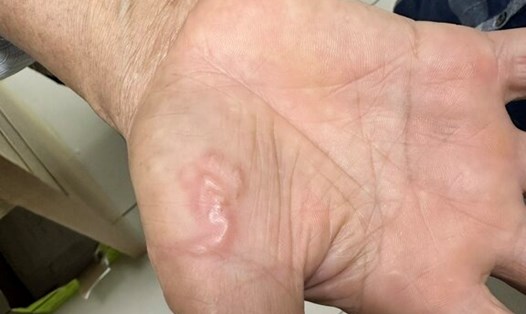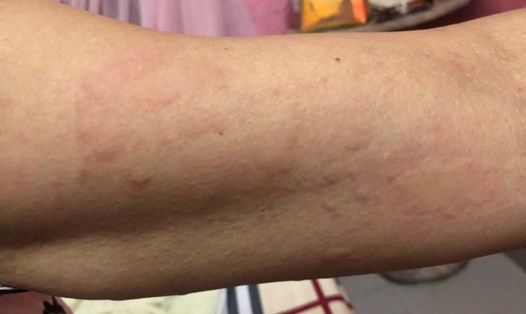The patient was diagnosed with acute liver failure, blood clotting disorder, and colon cancer.
Patient has a medical history: Colon cancer, treated with 2 chemotherapy sessions, the most recent one 1.5 months ago. In the past month, the patient has been experiencing fatigue, poor appetite, increasing jaundice, bloating, indigestion...
At the hospital, the patient was diagnosed with acute liver failure, blood clotting disorder, and colon cancer. Gastric and bronchial fluid tests showed multiple images of strongyloidiasis, consistent with the clinical picture, and the diagnosis was: Disseminated strongyloidiasis.
The patient was treated in the Intensive Care Unit with physical exhaustion and mechanical ventilation via endotracheal tube.
According to Dr. Dang Van Duong - Intensive Care Unit, the patient was being treated for a serious underlying disease. When the patient was transferred with a severe infection, the doctors assessed the patient as having a risk of disseminated strongyloidiasis and conducted a search test. When the results of the gastric and bronchial fluid tests showed strongyloidiasis, the patient was immediately started on specific strongyloidiasis treatment combined with broad-spectrum antibiotics.
After treatment, the patient had significant improvements. Despite the progress, the treatment of disseminated strongyloidiasis is still a long process.
Normally, strongyloidiasis in healthy people may only manifest mild symptoms such as digestive disorders, rashes, fatigue, loss of appetite, etc. However, in immunocompromised patients, those taking corticosteroids or immunosuppressants for a long time, they may develop strongyloidiasis hyperinfection syndrome or disseminated strongyloidiasis, with worm larvae penetrating many organs such as the heart, liver, lungs, kidneys, brain, etc., accompanied by severe, life-threatening infections that are difficult and expensive to treat.











